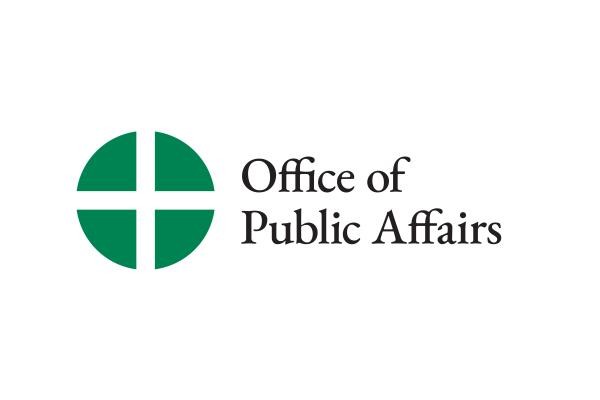Methodist-Catholic Dialogue Explores Eucharist, Environment
WASHINGTON—Care for one’s bodily health is linked to care for the body of the Church and for material creation, Methodist Bishop Timothy Whitaker said in a sermon during the second meeting of Round 7 of the Methodist-Catholic Dialogue at St. Paul’s College in Washington, June 15-17.
WASHINGTON—Care for one’s bodily health is linked to care for the body of the Church and for material creation, Methodist Bishop Timothy Whitaker said in a sermon during the second meeting of Round 7 of the Methodist-Catholic Dialogue at St. Paul’s College in Washington, June 15-17.
Bishop Whitaker, who co-chairs the dialogue with Bishop William Skylstad of Spokane, Washington, drew on the body image from the New Testament to show that Christ’s redemption embraces all of creation and implies respect for the natural environments in which parishes and church agencies are located.
The dialogue between the United Methodist Church and the U.S. Conference of Catholic Bishops (USCCB) dates back to 1966, and has covered a broad range of theological and moral topics. In the current round, participants are examining Christian responsibility for the environment from the perspective of the Church’s rich sacramental heritage.
Recently, religious leaders have spoken about global climate change and its impact on people in poverty. The National Religious Partnership on the Environment has called particular attention to the hardships that will burden the poor if policies to reduce greenhouse gas emissions are not carefully structured. Representing the Partnership as a guest speaker, Walter Grazer said that it is incumbent that policies “create new well-paying, climate-friendly jobs and assist workers who lose their jobs as a result of new climate regulations and other policies.”
The dialogue draws expertise from scholars whose specialties are in either ethics or sacraments. Their conversation hopes to produce an adult education instrument to enable laity from both churches to respond to the current ecological crisis from the vantage point of believers who celebrate God’s gift of creation in every Eucharistic liturgy.
Two presentations were given by Msgr. Kevin W. Irwin, Dean of the School of Theology and Religious Studies at The Catholic University of America. In the first, Msgr. Irwin traced developments in Eucharistic doctrine found in papal documents from Pius XII to Benedict XVI. Later, Msgr. Irwin explored the symbolic language of the Eucharist to show the connection between the work of making bread and wine and the work of redemption. “The very bread and wine themselves are human gifts through which we receive the richest of divine gifts,” he said.
Kendall Soulen, Ph.D., of Wesley Theological Seminary in Washington, spoke on Methodist sources for connecting sacraments and ecology. The writings of John Wesley, along with the hymns of his brother Charles Wesley (sung in both Catholic and Methodist communities), presuppose a theology of creation that emphasizes the glorification of God in the natural world.
Father Francis Tiso, Associate Director of the USCCB Secretariat for Ecumenical and Interreligious Affairs, explored environmental themes in the monastic tradition. Monks and nuns always have emphasized the harmony between the natural beauty surrounding their settlements and the life and worship that takes place within the monastic enclosure, he said.
In addition to Bishop Skylstad, Catholic participants also included Father James Massa (staff); Jesuit Father Drew Christiansen, Editor, America Magazine; John Hart, Ph.D., Boston University; and Angela Russell Christman, Ph.D., Loyola College in Maryland.
Other Methodist participants included Rev. Betty Gamble (staff); Edgardo Colon-Emeric, Ph.D., Duke University, and Karen Westerfield-Tucker, Ph.D., Boston University.
The next meeting of the dialogue is scheduled for December 15-17, at St. Paul’s College in Washington.

